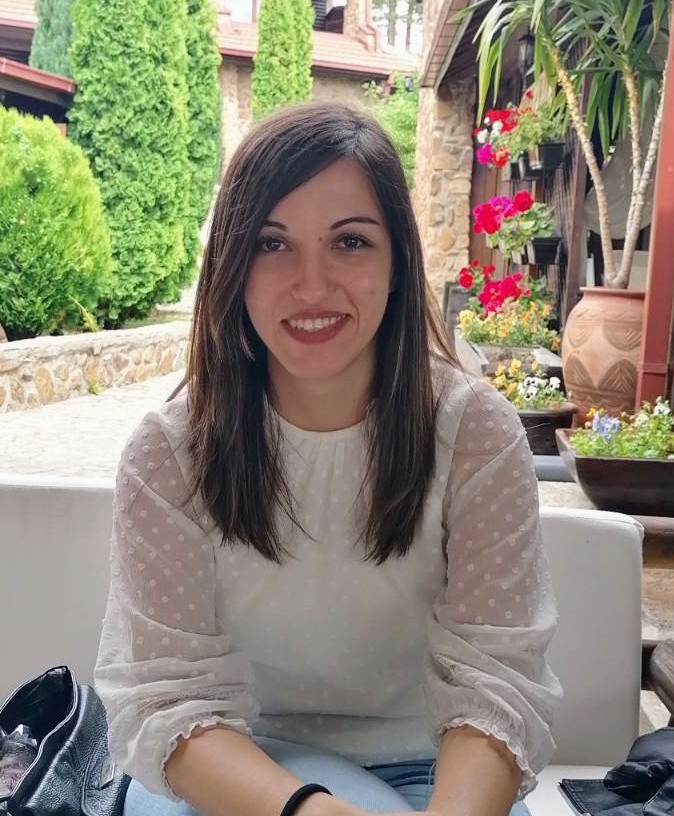Coronavirus caught us all unprepared. We did not take it seriously at its appearance in Wuhan, China in December 2019. It was just another virus that did not affect us, it was far away. Soon enough, in February 2020 the first confirmed case of COVID-19 appeared in North Macedonia. Two weeks later all schools were closed, people started working from home, a ban on free movement came into force and everyone was panicking. Around the same time Center for intercultural dialogue closed its offices and we started working from home.
Тhis was a new situation that we all needed to get used to. We are very friendly people and we always hug and kiss each other to say hello. We were used to spending a lot of time together in the office. Now the Ministry of Health has advised us not to shake our hands even to greet each other. It was difficult for all of us but we had to accept the situation and adapt to the new conditions. We started having weekly meetings on ZOOM platform where we just had some coffee with our colleagues and discussed daily topics. It was really fun! We brainstormed ideas for online activities during the quarantine time. We wanted to engage our volunteers as much as possible. So we started doing Instagram challenges on favorite CID activity, Easter challenge for the most beautifully decorated egg, CID experience, etc. We also organized meetings with volunteers where we shared ideas on how to spend our time in quarantine.
We soon saw that the situation was not improving and that we would have to adjust the activities of our current projects online. We started with opening calls for drawing competition and essay competition. The competitions were part of the project Civic Engagement for Intercultural Society and were intended for young people between 11 – 18 years. This activity was well received by young people, and we got many paintings and essays. Later on, we organized three one-day trainings in the framework of the same project. The participants on this trainings learned more about the work and the needs of the Commission on Relation Between the Communities (CRBC); advocacy based on fact research; civic engagement and the models of civic engagement as part of democratic participation; introduction into the strategy “One society for all”.
In the meantime, two researches were conducted, one was part of the project Youth Ambassadors of Non-formal Learning, and the other one as part of the project Circular Economy for Youth. The conditions did not allow us to have face-to-face interviews and focus groups, so we adapted it online and it worked well for us. CID is always working on improving the capacities of the employees, so we attended a training for youth workers on how to reach out to disadvantaged young people. Moreover, we managed to organize the final event for our annual CID Academy online, where usually “the graduates” present their work in the previous year and receive certificates for a successfully completed academy. However, it was more than obvious that “the graduates” were missing the celebration, the party after the final event.
Our experience from all of these activities was that the face-to-face interaction was missing. The participants had a hard time staying motivated and engaged throughout the whole online activity, whether it was a training, interview, focus group, or a final event for their hard work throughout the year. Having the choice to mute yourself or turn off your camera can stop you from being active in an activity. On the other hand, the students were burdened with their school-related responsibilities, because our school system was not prepared for distance-learning.
A positive experience in this COVID-19 crisis was the virtual exchange between young volunteers from CID and young diplomats from World Chicago. The group consisted of 40 ambitious youngsters, who expressed their interest in collaborating with each other. As an outcome of this virtual exchange, an Online book club was created, where the participants choose a book to read and have an online meeting to discuss and share their opinions about it. The youngsters share the same opinion that if they weren’t in quarantine, they would not have teamed up with Chicago youth and vice versa.
In conclusion, the COVID-19 crisis had a huge impact on non-formal learning. However, as our Minister of Health has repeatedly said, “We must learn to live with the virus.” This means that all our activities from current projects should be adjusted online, and if we organize them face-to-face, we will have to adhere to certain measures.
Written by: Andrijana Tashevska
YAMNFL Project Partner: Center for Intercultural Dialogue







